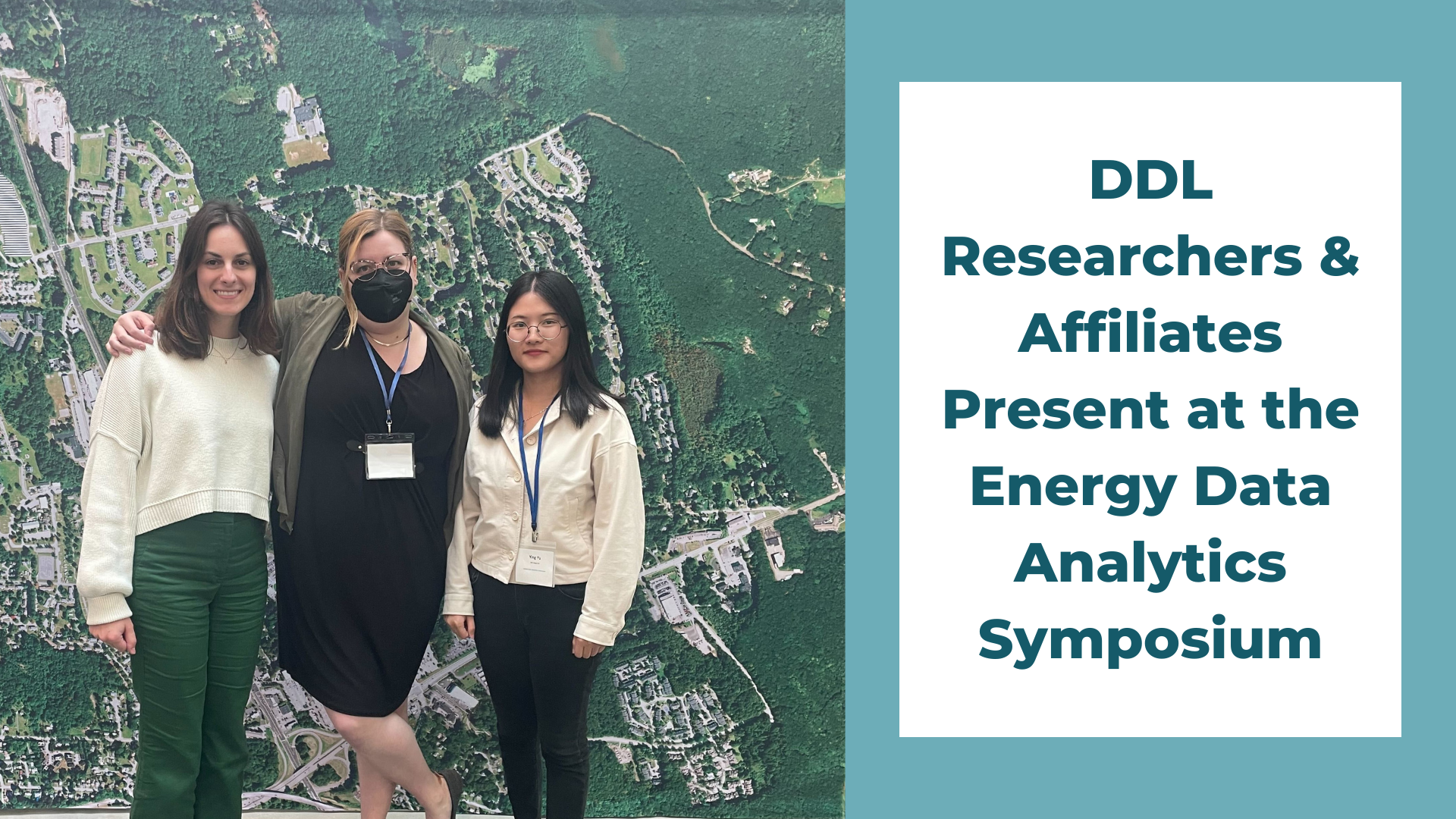 Last week, four DDL researchers and collaborators presented at the Energy Data Analytics Symposium co-hosted by the Nicholas Institute for Energy, Environment, and Sustainability at Duke University and the Energy Analysis and Policy program at the University of Wisconsin-Madison.
Last week, four DDL researchers and collaborators presented at the Energy Data Analytics Symposium co-hosted by the Nicholas Institute for Energy, Environment, and Sustainability at Duke University and the Energy Analysis and Policy program at the University of Wisconsin-Madison.
In addition to the networking events and panel discussions, the symposium gave emerging academics, including three DDL-affiliated PhD students, the opportunity to showcase their work through five-minute lightning talks, posted on YouTube. Elizabeth Brown, one of our DDL-affiliated Duke Energy Data Analytics Fellows, was selected for a featured, in-person lightning talk at the symposium and awarded third place.
Elizabeth Brown: Automating Geographic Inputs to Mini-Grid Distribution Maps in Papa New Guinea
Elizabeth is a Duke Energy Data Analytics Fellow and Public Policy PhD student at UNC-Chapel Hill working under the advisement of DDL Director Dr. Angel Hsu.
She was awarded third place for her lightning talk and invited for an in-person presentation and Q&A at the symposium.
Her research explores how remote sensing can lower the cost of installing mini-grids in Papa New Guinea. Considering that Papa New Guinea has low population density and low rates of grid connectivity, mini-grids are a compelling solution to help them reach their electrification goals; however, it is expensive to scout and survey the remote areas that could benefit most from mini-grids. To help solve this problem, Beth’s research project utilizes remote sensing imagery to estimate mini-grid costs, eliminating the need for expensive surveying trips.
Watch Beth’s lightning talk here.
Katherine Burley: Restoration Equity: Assessing Inequalities in Electricity Restoration in the Southeast
Katherine is a Graduate Assistant at DDL, a Duke Energy Data Analytics Fellow, and a Public Policy PhD student at UNC-Chapel Hill.
Her talk highlighted her research on restoration equity. Existing research suggests that the negative health and social impacts of power outages are longer and disproportionately worse for certain groups, including people of color, low-income households, and people over 65. However, evidence on this topic is limited to extreme outage events and there is a lack of publicly available historical data on electricity outage disparities. To address this problem, Katherine uses a combination of geospatial and equity analysis to develop a new metric, restoration equity, to complement existing metrics and paint a more vivid picture of how power outage impacts are distributed.
Watch Katherine’s lightning talk here.
Ying Yu: Revisiting Energy Equity from a Climate-Perspective Using Space-Time Models
Ying is a Duke Energy Data Analytics Fellow and DDL collaborator pursuing an Environmental Sciences and Engineering PhD at UNC-Chapel Hill.
In her presentation, she discussed her research on using space-time models to better identify energy access and burden disparities. As climate change poses increasingly urgent challenges, the lack of spatial and temporal data makes it difficult to pinpoint and work toward finding solutions to these disparities. Ying’s research seeks to fill this gap by utilizing remote sensing and machine learning techniques to identify the relationship between the heat index and the electricity affordability gap.
Watch Ying’s lightning talk here.

Recent Comments